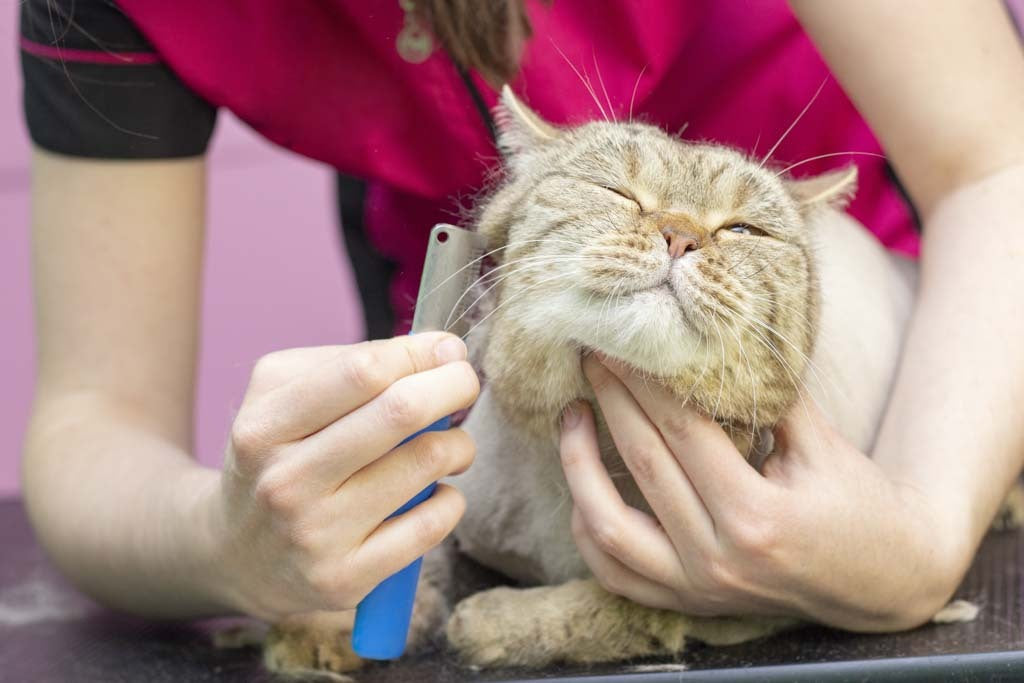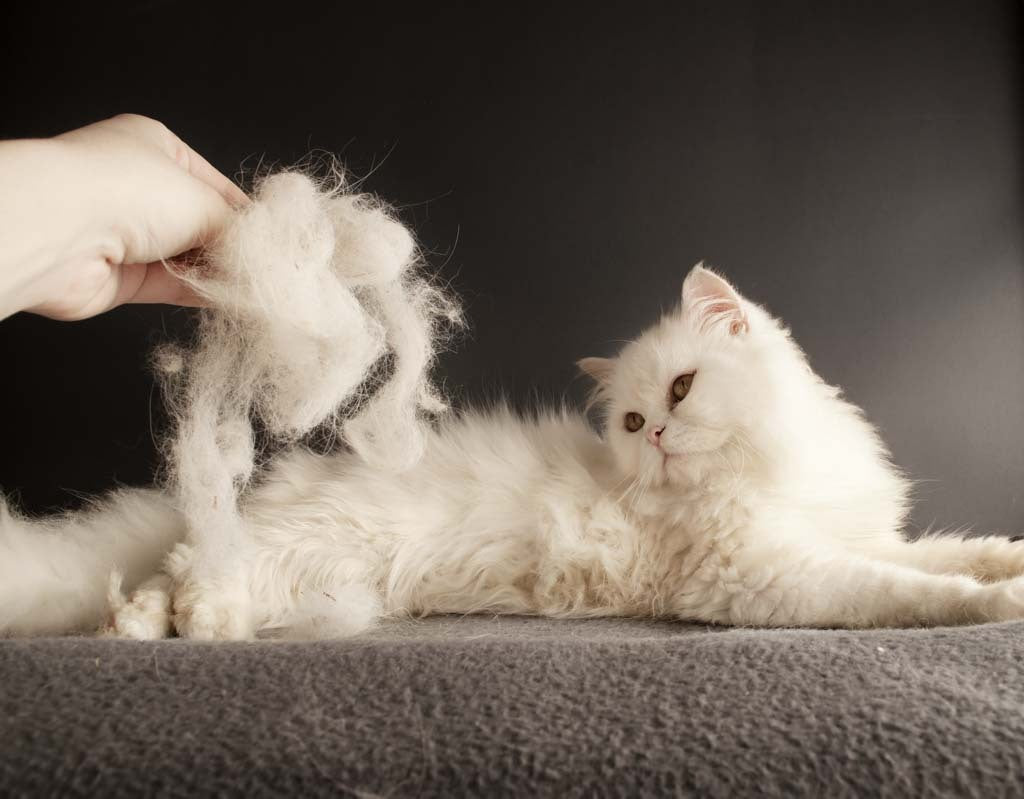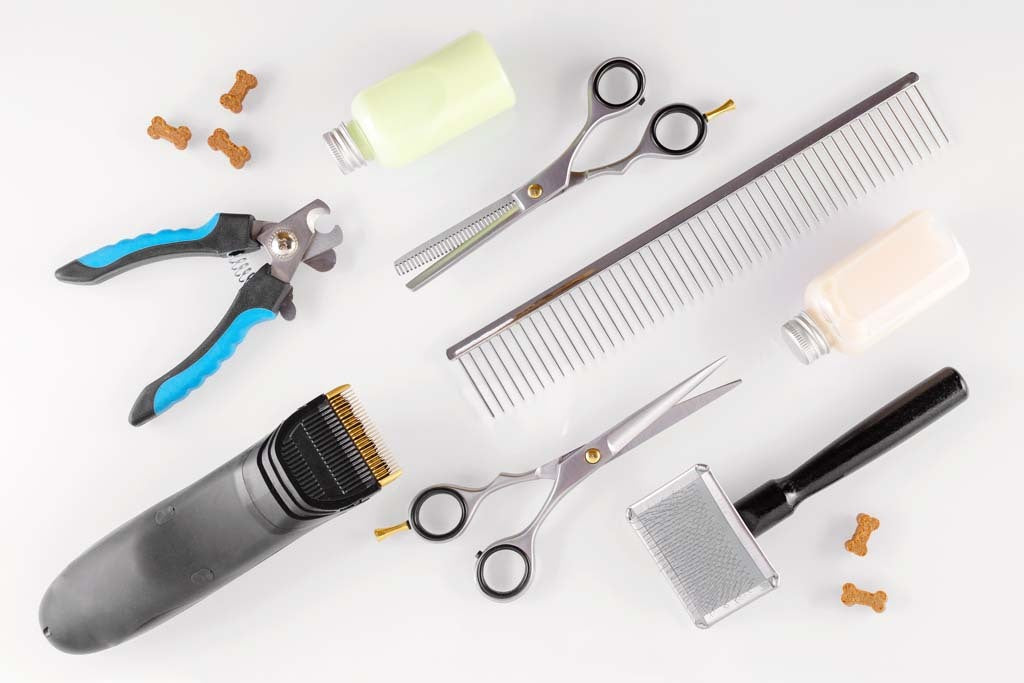Menu
-
-
Shop by Product
- Bestsellers
- Find Your Breed
- Closeout
-
- FREE SHIPPING ON ORDERS OVER $100
- Login

3 min read
Why Is My Cat Shedding So Much?
As a cat owner, it's normal to be concerned when you find your home covered in more cat hair than usual. Shedding is a natural process for cats, but excessive shedding can be a sign of underlying issues that may need attention. Let's explore some common reasons why your cat might be shedding so much and what you can do about it.

Is Cat Shedding Normal?
Cat shedding is very normal, and while all cats shed, some breeds shed more than others. Long-haired breeds like Persians and Maine Coons typically shed more, whereas short-haired breeds such as the Siamese or the American Shorthair tend to shed less. Hairless breeds like the Sphynx may still have a small amount of fur that sheds.
Whether your kitty tends to live indoors-only or explore outside on a regular basis also contributes to the amount of shedding they experience. Indoor cats tend to shed minimally throughout the year, while outdoor cats experience heavy shedding cycles in late spring and late fall.
How Much Shedding is Too Much?
Although shedding is completely normal for cats, excessive hair loss can signify an underlying health issue. So how can you tell?
1. Increase in Shedding
Firstly, you know your cat better than anyone and their seasonal changes in shedding. The first sign that your cat may be shedding too much is if you notice more hair collection than usual.
2. Excessive Grooming
Did you know that cats groom themselves up to half the time they’re awake? It seems like an absurd amount of time, but it’s true. If you notice your kitty licking or scratching themselves even more than usual, then something may be up.
3. Hair Loss
If you notice that your cat’s coat is thinning out or develop missing patches, this may be an indication of an underlying medical problem, and you should seek out medical advice from your vet.

Causes for Increased Cat Shedding
For the most part, excess shedding isn’t severe, and most are treatable with veterinary attention. 6 major causes of excess hair loss are:
1. Allergies
Skin, food, or environmental allergies may cause cats to itch and scratch a lot, leading to hair loss. When a cat scratches and grooms more than usual, they can lose hair and even develop a secondary skin infection. Although allergies aren’t curable, they’re manageable with medication and diet.
2. Age
Older cats may not groom themselves as efficiently as they used to, leading to more shedding. Health conditions such as arthritis can make self-grooming difficult. Regular veterinary check-ups can help identify and manage these issues, and brushing your elderly kitty will help them to keep their coat under control.
3. Stress
When cats are stressed, they may obsessively groom themselves, leading to bald patches or skin irritation. When a cat starts hiding from you, that can be another sign that they're stressed. You could try offering them their favorite toys and some mental stimulation to help ease their stress, and try to figure out the cause of their stress.
4. Pesky Parasites
Parasites such as fleas, mites, lice, and ticks may lead to excessive itching from bites causing bald spots and sores. If you're concerned that your cat might have parasites, take them to your veterinarian for a check-up.
5. Ringworm
Ringworm is very contagious between cats, dogs, and humans alike. According to Cornell Feline Health Center, ringworm is one of the most common skin disorders affecting cats globally. Your veterinarian can prescribe special creams and medication to treat ringworm.
6. Metabolic Disease
Metabolic disorders such as kidney disease and hyperthyroidism can cause hair loss in cats. These disorders are not curable, but when caught early, they can be treatable for some time.

How To Manage Excessive Shedding
Although shedding is inevitable, most excess shedding in cats is treatable, and there are simple ways to control the mess.
- Regular Grooming: Frequent brushing helps remove dead hair and fur, dramatically reducing the amount of loose hair and cat dander floating around the home.
- Healthy Diet: Ensure your cat is eating a balanced diet rich in essential nutrients.
- Hydration: Make sure your cat is drinking enough water, as dehydration can affect their skin and coat.
- Stress Management: Create a calm and stable environment to reduce stress-related shedding.
- Veterinary Care: Regular check-ups can catch potential health issues early and keep your cat healthy.
Hopefully you now have some idea why your cat is shedding so much. Shedding is a natural part of a cat's life, but excessive shedding can be a sign that something is amiss. If you have concerns about your cat’s shedding, or any aspect of their health, don’t hesitate to consult with your veterinarian for professional advice and guidance.
Leave a comment
Comments will be approved before showing up.
Subscribe
Sign up to get the latest on sales, new releases and more …

